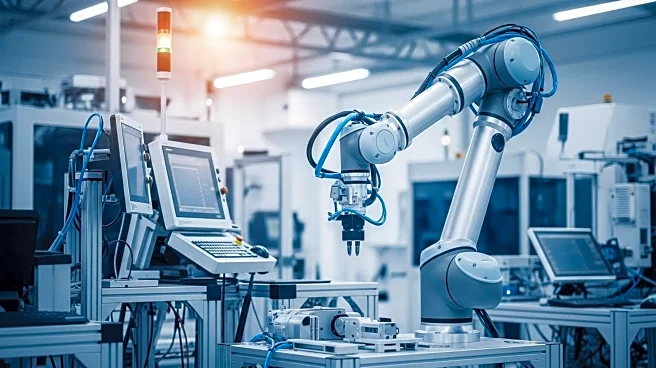What's Happening?
Artificial intelligence (AI) is increasingly being utilized by major companies such as Amazon, PayPal, and Microsoft to streamline operations and reduce labor costs. According to a CNBC report, AI tools are replacing roles in customer service, HR, finance, and software development, particularly affecting entry-level and repetitive jobs. PayPal's AI assistant, for instance, is reducing the need for customer service calls and live interactions. This trend is contributing to rising unemployment numbers in the tech sector, as young workers find their skills overlapping with AI capabilities. Executives often describe these layoffs as 'restructuring' or 'optimization,' though experts suggest these terms are often euphemisms for AI-driven cuts.
Why It's Important?
The integration of AI into business operations is reshaping the workforce, with significant implications for employment in the U.S. As AI continues to replace human roles, particularly in entry-level positions, there is a growing concern about job security and the future of work. While companies benefit from increased efficiency and reduced costs, employees face the challenge of adapting to new technologies or risk losing their jobs. This shift underscores the need for workforce retraining and education to equip workers with skills that complement AI rather than compete with it. The broader impact on society includes potential changes in economic structures and labor markets, as well as the need for policy responses to address these challenges.
What's Next?
As AI technology continues to advance, its role in workforce management is expected to grow. Companies may further integrate AI into various aspects of their operations, potentially leading to more job reductions. This trend could prompt discussions among policymakers, labor unions, and industry leaders about the need for regulations and support systems to protect workers. Additionally, there may be increased emphasis on education and training programs to help workers transition to roles that require human skills and creativity, which AI cannot replicate.
Beyond the Headlines
The ethical implications of AI-driven job reductions are significant, raising questions about corporate responsibility and the social contract between employers and employees. As AI becomes more prevalent, companies may face scrutiny over their employment practices and the impact on communities. There is also a cultural shift occurring, as workers must adapt to a new reality where technology plays a central role in their professional lives. Long-term, this could lead to changes in how work is perceived and valued in society.








